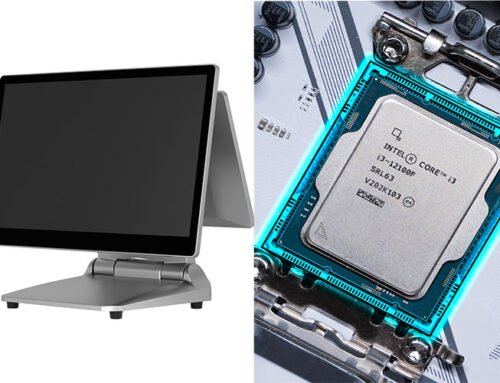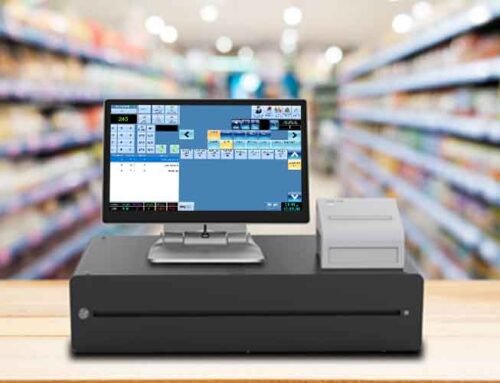Purchasing POS Systems is a crucial decision for any retail or hospitality business. It’s not just about ringing up sales; POS Systems serves as the backbone of your business operations, helping you manage transactions, track inventory, and analyze sales data. Given the importance of this investment, it is vital to consider several key factors before making a purchase. In this article, we will explore the six essential points to pay attention to when buying cash register: brand and manufacturer, hardware configuration, system platform and software support, network connection and peripheral expansion, price and after-sales service, and other considerations.
1. Brand and Manufacturer
When purchasing POS Systems, the brand and manufacturer are critical aspects to consider. Reputable brands often offer higher quality products, better performance, and more reliable after-sales service. Here are some factors to keep in mind regarding brand and manufacturer:
Reputation and Reliability
Research the reputation of various brands in the market. Established brands like Square, Clover, Shopify, Toast and TCANG have built a name for themselves through reliable performance and good customer service. Reading online reviews, seeking recommendations from other businesses, and evaluating the brand’s presence in the market can provide insight into its reliability.
Warranty and Support
Check the warranty offered by the manufacturer. A longer warranty period can indicate the manufacturer’s confidence in their product quality. Also, evaluate the availability of customer support. Reliable manufacturers often provide comprehensive support channels, including phone, chat, and email, to assist you when issues arise.
Innovation and Updates
Select brands that are committed to continuous innovation. Technology evolves rapidly, and manufacturers that regularly update their products with new features and improvements will help your business stay competitive. Research if the brand frequently releases software updates or new hardware models.
2. Hardware Configuration
The hardware configuration of POS Systems significantly impacts its functionality and usability. When evaluating hardware, consider the following components:
Processor and Memory
The processor and RAM (Random Access Memory) determine how quickly the cash register can perform tasks. A faster processor and sufficient memory (at least 2 GB of RAM) ensure that the system runs smoothly, especially during peak hours when multiple transactions occur simultaneously.
Display and Input Options
Look for cash register with a user-friendly display, ideally a touchscreen, which simplifies navigation and transaction processing. Additionally, consider input options such as barcode scanners and keyboards. A reliable barcode scanner can speed up checkout times, enhancing customer experience.
Storage Capacity
Evaluate the storage capacity of the cash register. It should have enough space to store transaction data, inventory details, and reports. If your business has a high volume of transactions, opting for a model with expandable storage capabilities can be beneficial.
Build Quality and Design
The physical design and build quality are also important. Choose cash register that is robust and suitable for your business environment. If you operate in a high-traffic area, a durable design can withstand daily wear and tear. Additionally, consider how the design fits into your overall store aesthetic.
3. System Platform and Software Support
The operating system and software capabilities of the cash register are crucial for its overall functionality. Consider the following when evaluating system platforms and software support:
Operating System
Different POS Systems run on various operating systems, including Windows, iOS, or Android. Choose an operating system that aligns with your existing systems or your team’s familiarity. For example, if your employees are accustomed to using Apple devices, an iOS-based system may be more intuitive.
Software Compatibility
Check for software compatibility with essential applications for your business. The cash register should support inventory management, employee scheduling, and reporting software. Evaluate whether the software is included with the cash register or available for additional purchase.
Cloud-Based Solutions
Consider opting for a cash register that offers cloud-based solutions. These systems allow you to access your sales data remotely, making it easier to monitor performance from anywhere. Cloud-based systems also often offer automatic updates and backups, reducing maintenance burdens on your staff.
User Interface and Usability
A user-friendly interface is crucial for efficient operation. The software should be intuitive, enabling your staff to navigate it easily. Look for cash registers with customizable dashboards and features that suit your business needs.
4. Network Connection and Peripheral Expansion
A cash register’s network capabilities and peripheral expansion options can significantly affect its performance and adaptability. Here are the key aspects to evaluate:
Network Connectivity
Assess the network connectivity options available with the cash register. Ethernet, Wi-Fi, and Bluetooth connections are common features. A reliable Wi-Fi connection is essential for cloud-based systems, while Ethernet may provide a more stable connection in high-traffic areas. Make sure the cash register supports your preferred connectivity method.
Peripheral Expansion
Evaluate the peripheral expansion capabilities of the cash register. Look for options to connect printers, cash drawers, barcode scanners, and other devices. Ensure that the cash register can accommodate future growth; for example, if you plan to add more points of sale (POS), your cash register should support additional hardware without requiring a complete system upgrade.
Integration with Other Systems
Check if the cash register can integrate with existing systems in your business, such as accounting software or customer relationship management (CRM) systems. Seamless integration can streamline operations and improve efficiency.
Security Features
Security is paramount, especially in a cash handling environment. Look for cash registers with robust security features, such as encryption for transaction data and user access controls. A secure network connection will protect your sensitive business information and customer data.
6. Other Considerations
Besides the key points mentioned above, several other factors can influence your cash register purchase decision:
Business Type and Size
Consider your specific business type and size. A small coffee shop may not require the same level of sophistication as a large retail store. Tailor your cash register choice to the scale and nature of your operations.
Scalability
Choose a cash register that can grow with your business. If you plan to expand your operations, look for systems that can handle increased transactions and additional features without requiring a complete overhaul.
User Training and Onboarding
Evaluate the training and onboarding resources available for your chosen cash register. Effective training for your staff can minimize errors and ensure a smooth transition to the new system. Some manufacturers offer online tutorials, in-person training sessions, or comprehensive user manuals.
Customer Reviews and Case Studies
Finally, read customer reviews and case studies related to the cash register you are considering. Understanding how other businesses have benefited from or encountered issues with a particular model can provide valuable insights. Look for case studies specific to your industry to see how the cash register performed in a similar context.
Conclusion
Purchasing a cash register is a significant investment that can affect the efficiency and success of your business. By paying attention to the six key points discussed—brand and manufacturer, hardware configuration, system platform and software support, network connection and peripheral expansion, price and after-sales service, and other considerations—you can make an informed decision that aligns with your business needs.
Investing time in thorough research and evaluation will ultimately lead to a more effective cash register solution, helping you streamline operations, enhance customer experience, and grow your business in the long run.






Leave A Comment